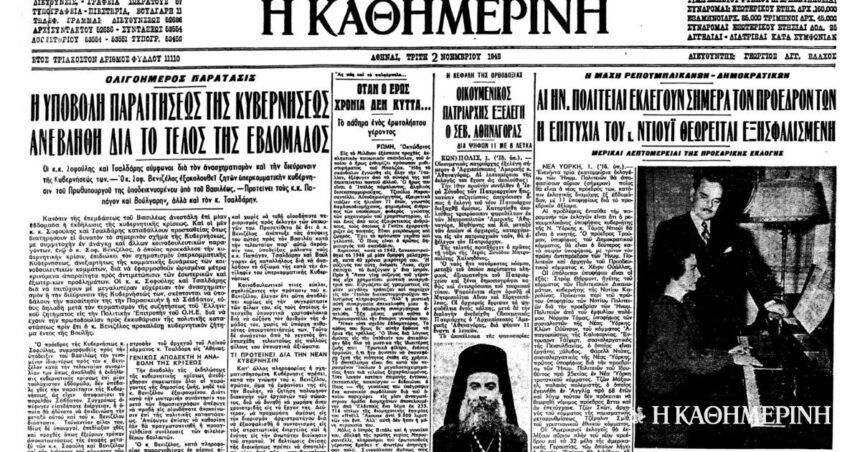After the death of Franklin Roosevelt on April 12, 1945, the position of President of the United States was assumed by the previous Vice President, Harry Truman. Truman was born in May 1884 to a family of farmers in the state of Missouri. Without having completed important studies, which he even left unfinished and being in a financial impasse, he enlisted in the army, even participating in the First World War. Several of his business endeavors failed, until, thanks to his political connections with the Democratic Party, he was elected Jackson County Judge in 1922, a position he held with brief breaks (1924-1926) until 1935, when he he was elected a senator from his state. Although he was not one of the prominent figures of the Democratic Party, he was chosen for the position of vice president during Roosevelt’s campaign to claim his fourth term in the White House.
In April 1945 Truman, the son of farmers from Missouri who didn’t even have a college degree, was sworn in as 33o President of the United States. His first term was marred by the dropping of the atomic bombs on Hiroshima and Nagasaki, the outbreak of the Cold War, the Marshall Plan and the Truman Doctrine, efforts to contain communism in Europe.
Although he was the leader of the Western world in the critical first years of the Cold War, his popularity inside the USA did not reach high rates. All measures of American voting intention showed Truman trailing in the race for the presidency on November 2, 1948. The Republican Party candidate, New York Governor Thomas E. Dewey, was leading. “Ninety-three million voters of the Enom. States will decide tomorrow (today) who will be their new president, after weeks of electoral controversy, with 11 candidates for the presidential office. The predictions here on the eve of the election are that the Republican candidate for governor of New York, Mr. Thomas Dewey, will be the winner. President Truman, candidate of the Democratic party, will be the second candidate in line, with the former vice president of the United States third. of States and leader of the Progressive party, Mr. Henry Wallace”, wrote “Kathimerini” on its front page on the day of the elections, on November 2, 1948.
Early results indicated that New Yorker Dewey would likely beat Truman. This impression, however, was later reversed. “The personal victory of Mr. Harry Truman was perhaps the “most surprising political event” of those recorded for decades in the life of the Generals. States. No one expected that the head of the Democratic Party, after the great personality of Franklin Roosevelt had faded and since this party had remained continuously at the beginning since 1932 with the inevitable decay exacerbated by the Second World War would be able to emerge victorious from such a pull “, reported “Kathimerini” on November 4, when the counting of votes was completed. As he pointed out on its front page, “Mr. Truman did not follow the fate of Mr. Winston Churchill and other war leaders. Many psychological factors, due in particular to his pro-worker politics and his humanitarian feelings, decisively influenced the outcome of yesterday’s election”.
Harry Truman ended his term in January 1953. He was succeeded by Dwight Eisenhower, who politicized his predecessor. The Democrats returned to power in January 1961, when a young and charismatic politician from Massachusetts, John F. Kennedy, assumed the duties of President.
Column Editor: Myrto Katsigera, Vassilis Minakakis, Antigone-Despina Poimenidou, Athanasios Syroplakis






